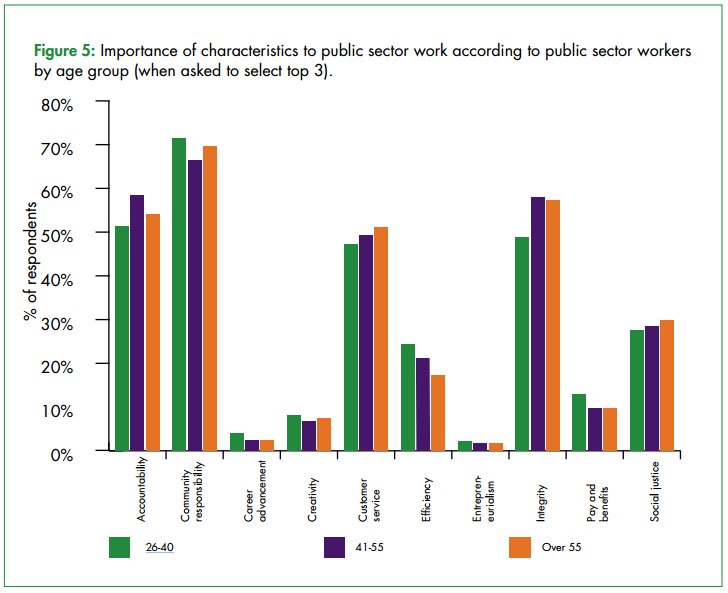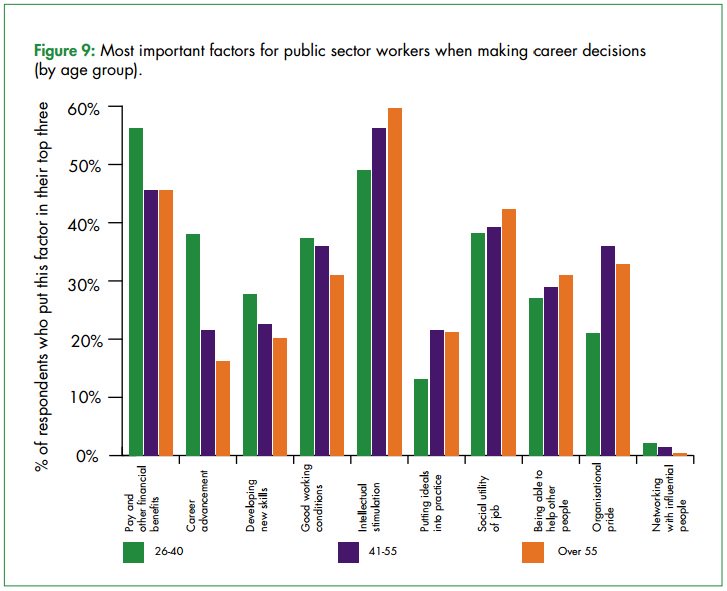Are younger public servants changing the public service ethos?
Author: Dominic Leigh |
Notions of the ‘public service ethos’ have been in place since the formation of the civil service, which established an ethical framework based on impartiality, political neutrality and the pursuit of the public interest, with new civil servants expected to adhere to four core values: integrity, honesty, objectivity and impartiality/ selflessness. These principles were codified and expanded in Nolan’s Seven Principles of Public Life in 1995. Our survey of 1415 public sector workers, as part of the report A New Public Service Ethos, found that significant attachment still exists within the public sector to the public service ethos, particularly in relation to accountability, community responsibility, customer service and integrity.
However, we also found younger public sector workers, aged 26-40, to have less commitment to a number of these public service ethos values, including accountability, customer service and integrity, than their older peers. On the other hand, they attach greater importance to career advancement, creativity, efficiency and pay and benefits than other age groups. While, the differences between age groups are relatively small in some cases, the variation on accountability, efficiency and integrity is clear. The overall trend within younger public servants seems to be a marginally diminished attachment to the public service ethos with marginally increased value being placed on qualities associated with the private sector.

This trend is also reflected in the motivations of public sector workers when making career decisions. For example, younger public servants place significantly greater importance than their peers on pay and other financial benefits, career advancement, developing new skills and having good working conditions. In contrast, they place less significance than other age groups on having a job that allows them to put their ideals into practice, has social utility, allows them to help other people and have pride in the organisation they work for.
Whilst this emphasis on pay and career advancement to some extent will reflect natural differences in age due to life style circumstances, what with younger people generally being earlier in their careers and earning lower salaries, the public sector will need to adapt in order to meet the aspirations of younger public servants or risk being unable to attract the right people under strong competition from the private sector.

Whilst this emphasis on pay and career advancement to some extent will reflect natural differences in age due to life style circumstances, what with younger people generally being earlier in their careers and earning lower salaries, the public sector will need to adapt in order to meet the aspirations of younger public servants or risk being unable to attract the right people under strong competition from the private sector.
